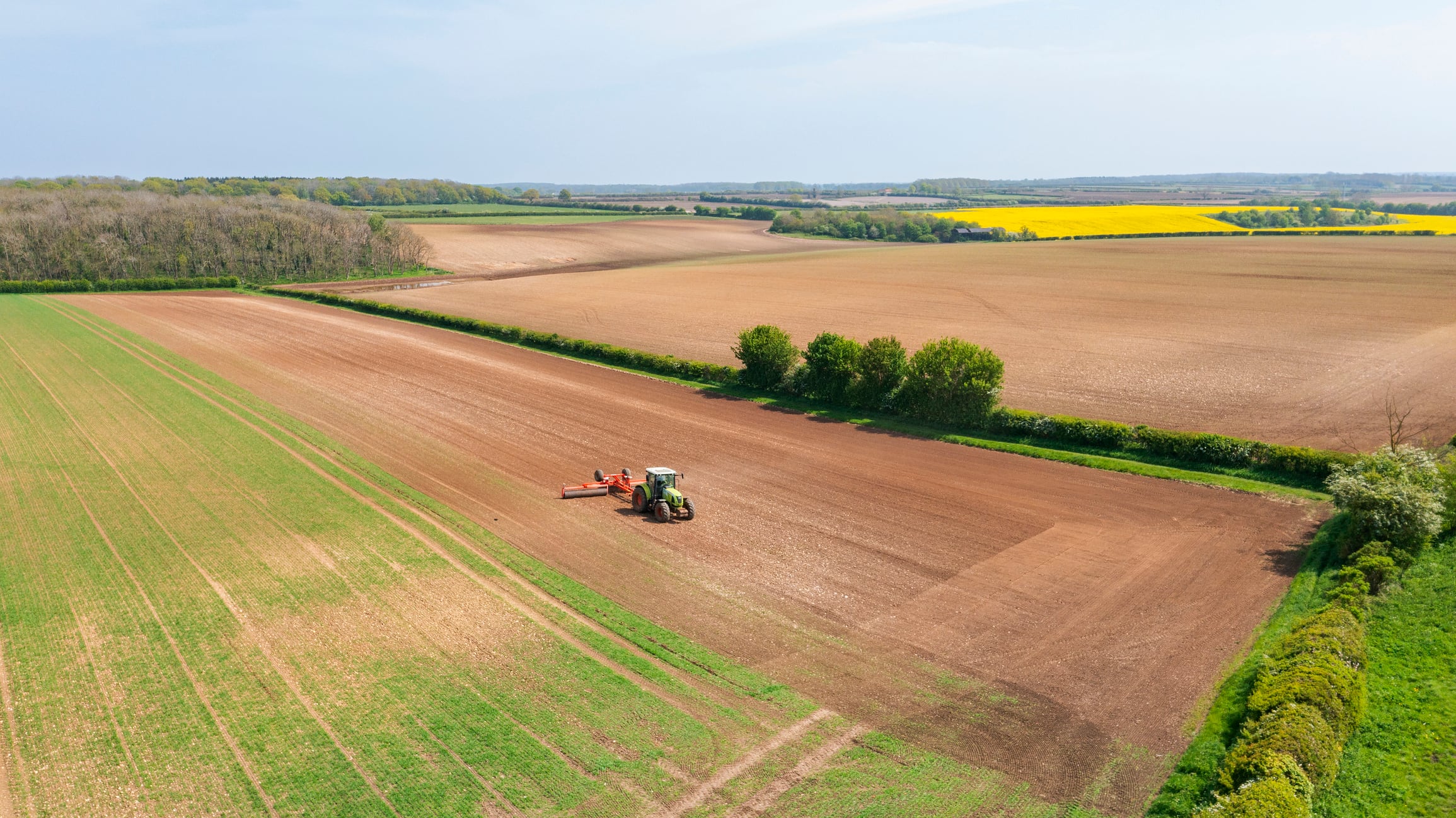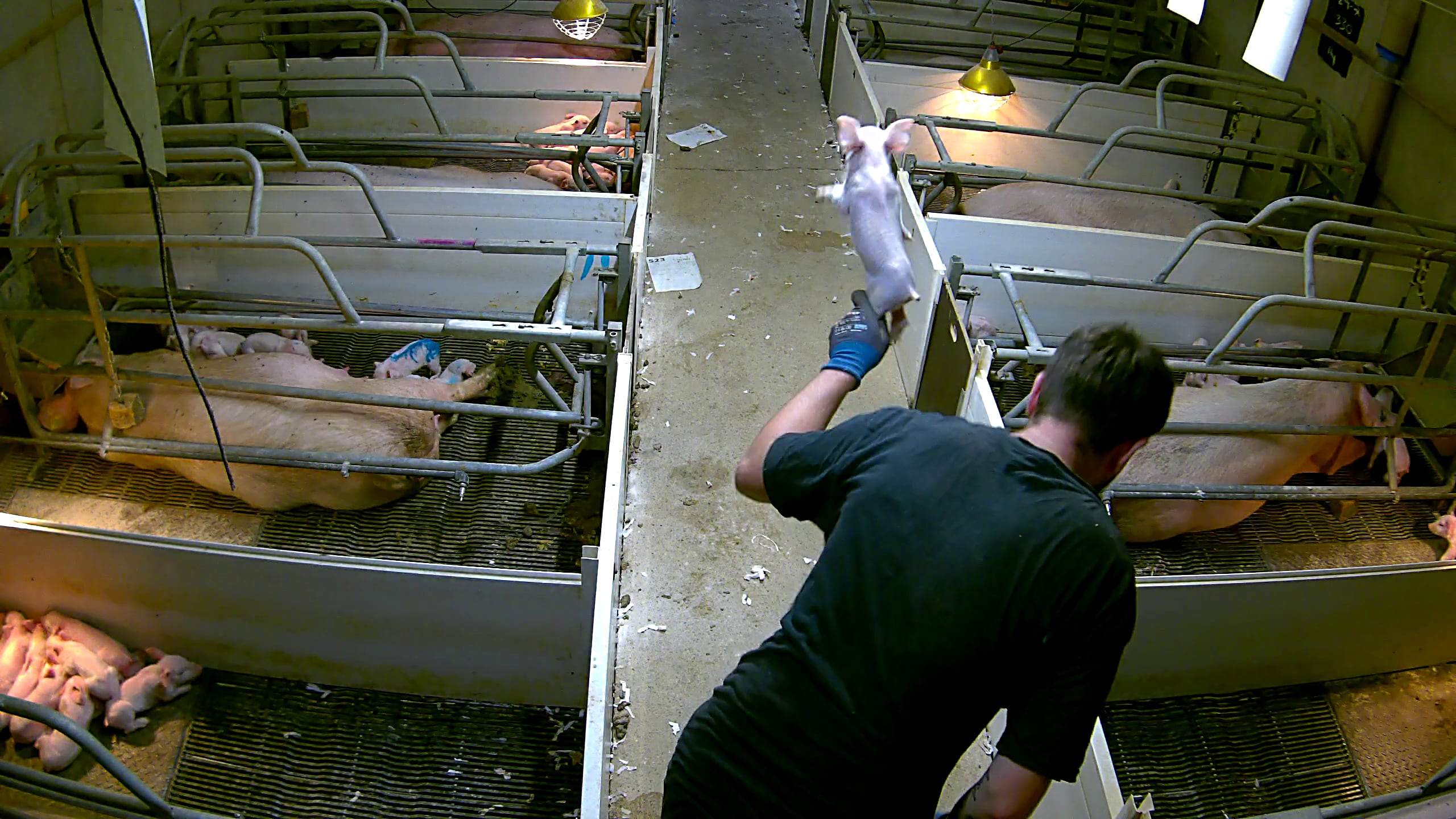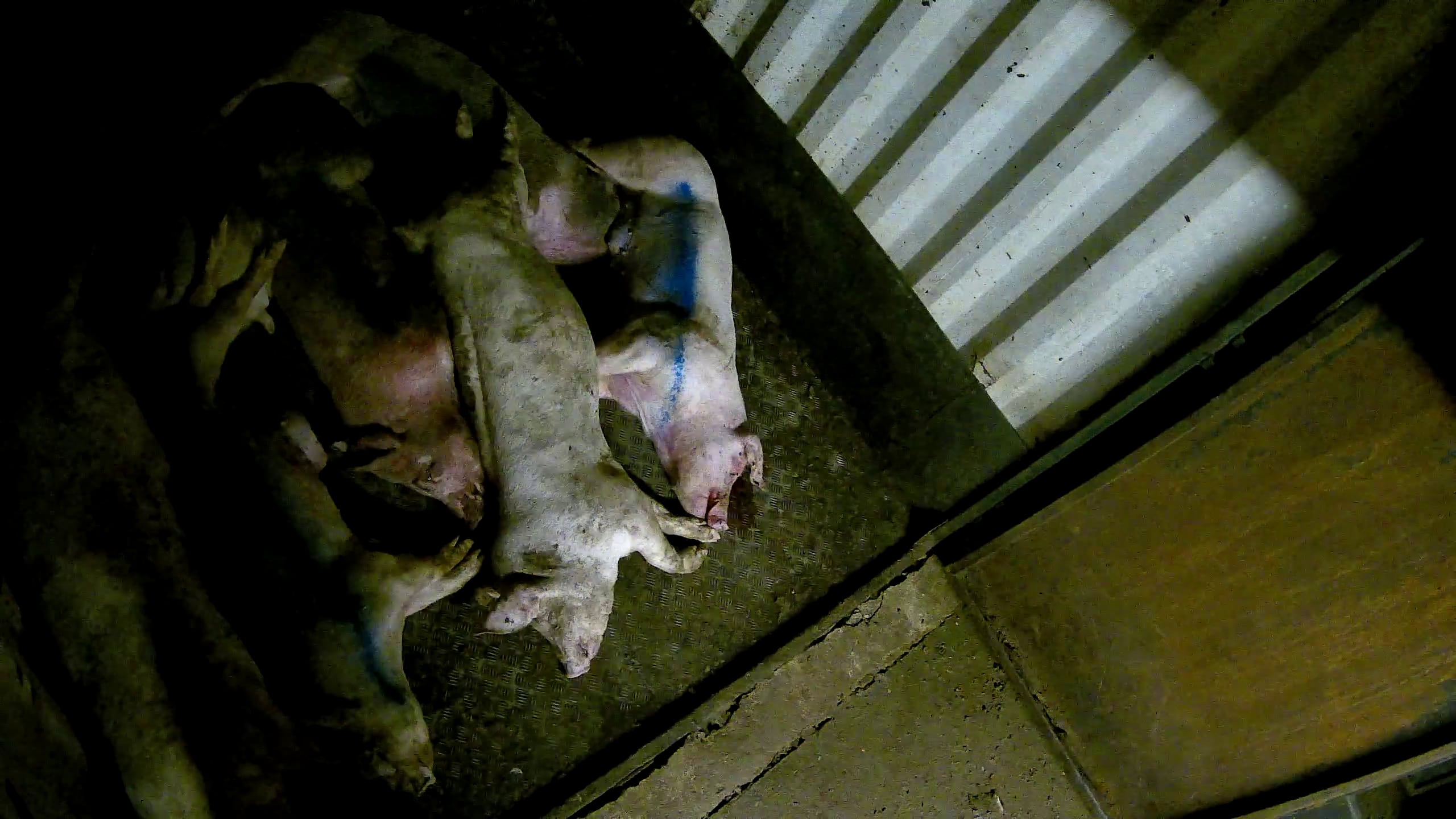The board at Cranswick has set out a new six-point plan to better its animal welfare conditions following the completion of an independent, veterinarian-led review of its pig farming operations.
The promise has come after footage was captured at North Moor Farm - part of Elsham Linc - in Lincolnshire during an undercover investigation led by Animal Justice Project earlier this year.
The footage showed piglets being swung by their legs and slammed against concrete by people working at the farm, alongside footage of piglets being kicked, kneed, jabbed and beaten with metal bars and shovels.
Further incriminating footage later emerged from two other farms within the pork giant’s operations.
Cranswick sees shares falling
Shortly after the first event, Cranswick’s share price fell by around 7%, dropping from 5,360 BGX on the close of 9 May to 4,980 GBX on the close of 12 May.
Its shares recovered quickly and over the course of June 2025, despite a protest demonstration at a Tesco (one of its customers) AGM, they remained fairly steady.
More recently there has been a decline - on close of 10 November shares stood at 4,930 GBX. Its performance over the last six months has witnessed a fall of 8%, according to Hargreaves Langsdown.
The outcome of the Cranswick animal welfare review
The inspection into its practices, led by independent vet Dr Andy Butterworth who was commissioned after the ‘unacceptable’ North Moor Farm footage emerged, included unannounced visits to 20 separate pig farms during June, July and August 2025.
According to the review, the farms visited were found to be compliant, with no evidence of poor handling or treatment of pigs on farm. It concluded that the actions seen in the investigative films were not representative of Cranswick’s normal standards and practices.
“I was commissioned by Cranswick to look at pig operations across all their systems. I found that the behaviours seen in the videos were not exhibited during the farm visits. However, there is much that can be done to improve welfare standards across Cranswick operations, and across the pig farming industry, as set out in my report and in the forty-four recommendations I have produced,” Butterworth said.
“I recognise Cranswick’s acceptance of the findings, and their commitment to work towards adopting the recommendations.”
Regardless, the event has prompted the business to set out new recommendations for raising standards at Cranswick and across the wider industry.
The recommendations include:
- The standardisation of farming practices and procedures across all Cranswick pig farms
- Increased use of surveillance systems to ensure good practice in pig welfare on farms
- Improvements in the culture and working practices on farms
- Increased focus on animal health and welfare outcomes and collaboration with the industry
- Red Tractor and Cranswick customers to develop improved welfare standards for pigs
It has also given way to a six-point plan, which includes a £40 million investment over the next three years to improve and modernise the Cranswick pig farming operations; the introduction of five new welfare officer roles; and a full review of Cranswick training, working practices and farm culture.
A Cranswick spokesperson commented: “The health and welfare of the pigs we rear is, and always will be, our priority. As soon as this footage was shared with us in May, the Board acted swiftly to understand what had happened and take steps to stop these appalling practices from happening again.
“Many of the changes we have made predate this report – including removing anyone from the business who was found to have broken Cranswick standards and introducing a total ban of non-mechanical blunt force trauma at all Cranswick farms.
“But what this report shows is there is more we can do. As the UK’s leading pork producer, we should go further than simply complying with the law and meeting our own standards. We should be looking to lead the industry and raise standards wherever possible.
“That is why the Board has developed this six-point plan to raise standards across our operations and share our experiences with the wider industry. The Board would like to thank Dr Butterworth for the work he has done and the comprehensive investigation he has undertaken. We will provide a further update in due course on our progress against the six-point plan.”
Cranswick directly operates around 100 farms and employs over 600 colleagues. It also has 300 third party farm partners, rearing Cranswick’s pigs and operating to Cranswick’s standards. In total, these farms produce approximately 35,000 finished pigs per week for Cranswick’s processing sites.
Cranswick's six-point plan
1. A full review of Cranswick training, working practices and farm culture. This will include an enhanced training programme, delivered regularly by vets and farm welfare experts.
2. The introduction of standardised working practices and procedures across all Cranswick farms, to ensure that standards are the same across Cranswick’s pig farms.
3. The continued installation of advanced AI-enabled CCTV surveillance technology to review and implement good practice for pig welfare on farms and to monitor ongoing health and welfare measures.
4. The introduction of five new welfare officer roles, which will be based in a dedicated Cranswick Welfare Hub. This refurbished site will become a centre-of-excellence for training, research and development, and will host Cranswick’s CCTV and AI-enhanced monitoring capabilities.
5. The incorporation of the updated welfare procedures into Cranswick’s ESG programme, including formal progress reviews with the Board.
6. Investing over £40m across the next three years to improve and modernise the Cranswick pig farming operations.





